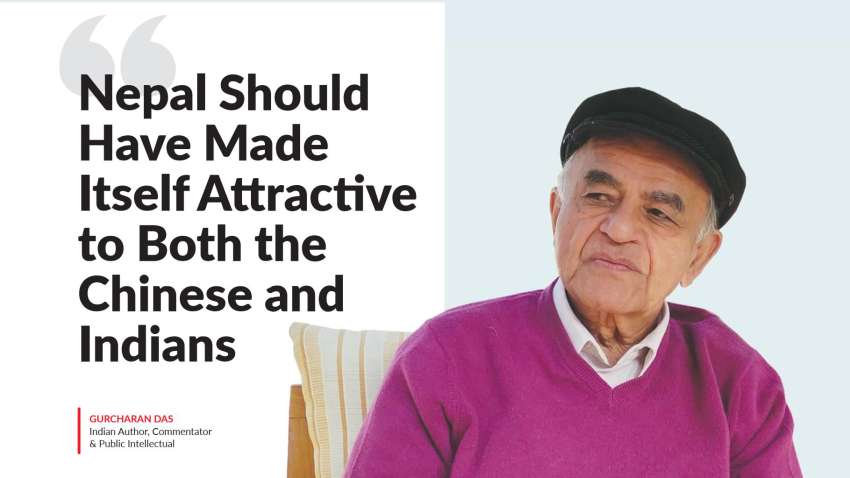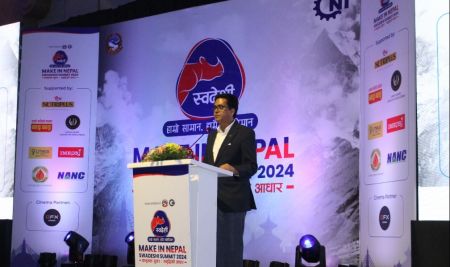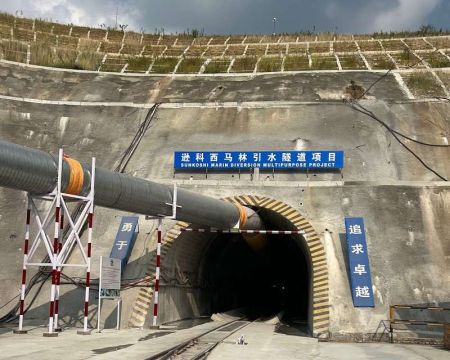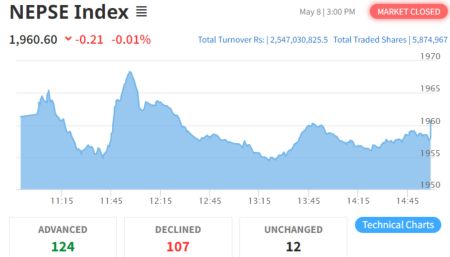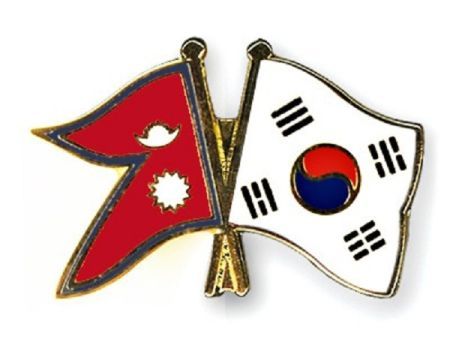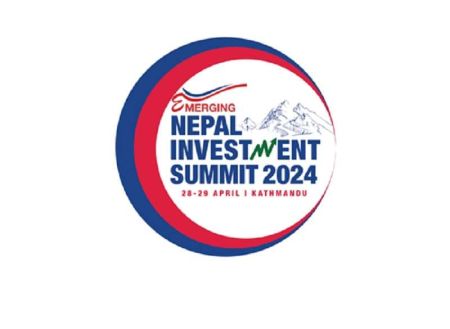Gurcharan Das is an Indian author, commentator, and public intellectual. He is known for his works on economics, business, and culture. Das was born on October 3, 1943, in Lyallpur (British India). He studied at Harvard University and later worked for many years in the corporate sector, including as CEO of Procter & Gamble India. Das is widely recognized for his book "India Unbound," published in 2000, where he explores the economic and social transformation of India since its independence. He was recently in Kathmandu for the launch of his book ‘Another Sort of Freedom’. Madan Lamsal of New Business Age had a long conversation with Das on his academic and business careers. Excerpts:
As an octogenarian who has observed deeply both the academic and business world, how do you see the way the world is going ahead?
My life is drawing the curtain on a liberal age. This liberal age began in 1945 after the Second World War and the defeat of fascism. After the defeat of communism in 1989, it is truly a world where most countries are democratic, and they follow the market system. Now, for the last seven to eight years, this age is under threat from many forces - forces of 19th-century nationalism, from people who are upset by the inequality created by capitalism, by globalisation, which was one of the culminations of capitalism. Also, by narrow provincialism that is spreading across the world. As a result, we have seen a retreat of liberalism or liberalism under threat; there is a crisis. The crisis is partly created by the liberals themselves. Because liberals are usually highly educated people and they are privileged, they can become arrogant. They have not bothered to engage with the other side - the unprivileged.
In India, liberals after Nehru did not engage with tradition - the rich Indian tradition based on Hinduism. They wanted to create a secular society and give minorities a proper place. They dismissed Hinduism and its many gods and caste system. They were mildly anti-Hindu. But in reality, the ordinary people of the country are believers. There is a civilizational unity with countries, including Nepal. The worst part is that the elites spoke in English; they were more comfortable in English than in their own language. They did not try to expand the use of English either. In India, all serious discussions on public policy still take place in English. The reality is that only 10% of Indians understand English comfortably. This is the resentment that was created. That resentment is now being expressed in the form of Hindutva and the concept of a Hindu nation, etc. The irony is that Hinduism actually has a very liberal temperament.
They are more influenced by the European nationalism of the 19th century where nations/states were created based on language, ethnicity, religion, etc., which is a very narrow-minded nationalism. In the desire to bring civilizational unity to Hinduism, they are doing the opposite. They are creating 19th-century nationalism, which is very narrow.
The world is changing. We can also see changes in India and in our business. Globalisation is retracting.
What explains, in your view, the present day strifes across different parts of the world?
One is inequality created by capitalism. The second is migration of people. In the US there is a backlash against migration. In Europe, Brexit was a result of the backlash against migration.
In this age of communication revolution and the digital world, can any country stop that?
They can't. But they can put politicians in power who will stop migration, like Trump in the USA. Nationalism, unfortunately, has a negative side that seeks to find somebody to blame for the troubles.
There are two kinds of nationalisms: good nationalism and bad nationalism. I came back to India because of the stories that my grandmother told me about the Mahabharata and Ramayana, and about the geography of the country, the memories of the Himalayas, and all that. That is good nationalism. Bad nationalism is about power. It always tries to find an enemy to blame somebody for the troubles that you are having.
It is good to be self-reliant, but it is not good to be self-sufficient. Being self-reliant is good; you make products in your country, you compete with the world, that's good. But being self-sufficient says, 'I don't need to get anything from anywhere else. I am the best.' It is about superiority. That is the problem in the wrong interpretation of ‘Atma Nirbhar.’ That's why I say Modi’s policy of ‘Atma Nirbhar’ should be ‘Atma Nirbhar’ for the world. The policy should be India making for the world. It has to bring down tariffs to competitive levels so that businesses come to India, and it can export and join the global value chain, supply chain. This is what China did. This is the right kind of self-reliance and nationalism.
Some say the globalisation and liberalisation process that gained momentum after the collapse of the Berlin Wall is now reversing. How do you see this?
The year 1989 marked the last challenge to liberalism. Liberalism secured its victory because Marxism was defeated. After that, the world embraced capitalism, which had no apparent enemies. However, capitalism still had its critics—those who were once Marxist. With the downfall of communism and socialism as utopias, critics had to find alternative concerns. Capitalism, like democracy, has its issues, but there is no better alternative to either. Critics of capitalism have become increasingly vocal, attacking it for various reasons. Thomas Piketty, for instance, has suggested a global tax on all multinational corporations. Capitalism indeed has its defects. While it doesn't require everyone to be equal as in socialism, it should still focus on equality of opportunity, providing better schools and healthcare. There should be a sense of fairness. Despite the world's wealth, the U.S., as the richest country, lacks a proper healthcare system compared to Europe. Therefore, there might be a need for the expansion of the welfare state, though one must be cautious not to go too far, as it could undermine the incentive for people to work. With the advent of AI and robotics, there are growing concerns.
In the context of communism and the failure of Marxism, how do you perceive the approaches of the Chinese, Russians, or even North Koreans?
They operate as dictatorships. The Chinese story, post-Deng Xiaoping, is one of the greatest miracles the world has ever seen. They leveraged global capitalism without altering their political system, which remains a dictatorship. However, all was going well until Xi came into power. Xi aims to assert Chinese dominance and has sought to limit the influence of powerful Chinese entrepreneurs. He lacks the understanding that Deng Xiaoping possessed. China's threat is very real because of Xi. It's not necessarily a defect in the Chinese people but a leadership problem. While he may step down one day, the underlying issue may persist.
Presently, we are witnessing a shift to a multipolar world, with America on the decline. Despite this, I still prefer the U.S. to maintain a presence in East and Southeast Asia because I don't fully trust the Chinese.
I believe the best strategy Nepal should have pursued in the last 25 years is to link its economy to both China and India—two of the fastest-growing countries globally. Nepal should have reaped benefits from both nations. It required a Chinese leader to understand that it's not just about politics but also economics. The best foreign policy for Nepal should be achieving 8% economic growth, attainable through trade or investment. Nepal should have made itself attractive to both the Chinese and Indians, not just as a market due to its size but as a favourable business destination, akin to how Singapore positioned itself ahead of Malaysia.
You talked about Hindu nationalism and all the native fundamentals, rejecting Western ideas and labelling them as inputs by foreigners. So, what good or bad can be expected from this?
First of all, many things that we think are brought by foreigners are actually universal values. A smart country takes these ideas of equality, liberty, and fraternity as universal. The right kind of modernization is to adopt these universal values and incorporate them into your life. Don't dismiss something as Western; if it's good, embrace it. The market is not Western; it’s universal. Trade existed long before the rise of the West. We have a history of exchanging goods.
You have studied philosophy with great interest. Based on that, how do you foresee the world?
Liberalism is not Western. I agree that it emerged during the British Raj, but Indian thinkers in the 19th and early 20th centuries put an Indian spin on it. Gandhi, for instance, focused on inner freedom, emphasising that Swaraj doesn't only mean freedom from the British; it means inner freedom within ourselves. Similarly, Vivekananda, Aurobindo Ghoshe, and even Ram Mohan Roy, the first liberal in the 19th century, gave liberalism an Indian perspective. All I'm trying to say is that, being interested in philosophy, I truly believe we need to stop blaming the West or finding an enemy in China or the West. What we need to do is internalise these universal values, much like Vivekananda and others did. They tried to modernise Hinduism and make it relevant to our lives today.
What we need today are leaders, the right kind of leaders. Jawaharlal Nehru was a good leader; he appreciated democracy and embedded it. However, he was also influenced by socialist ideas. During Nehru's time, everyone was a socialist, inspired by the Soviet Union. The idea was to keep democracy but bring more equality and regulate capitalism. Unfortunately, that proved to be challenging. Nehru aimed for socialism, but bureaucracy resulted in the 'Licence Raj,' making India unfree for 40 years. It's difficult to blame Nehru entirely, but I blame Indira Gandhi. By the time she was prime minister, Asian tigers like Japan, South Korea, Taiwan, Singapore, and Hong Kong had risen, following the export of labour-intensive manufacturing. India's Fabian socialism in the '70s witnessed the success of East Asia without taking similar steps. Nepal followed India's wrong model, with Maoists and others failing to understand that it was East Asians who had shown the way. That's why I believe if Nepal had connected with these two economies it would have made a lot of progress. There, however, must be things that Nepal makes that could be attractive to both these countries.
A lot of talk is going on around the world about ethical businesses. Based on your study, how can Oriental philosophy help in this regard?
It's the notion of dharma. Dharma is doing the right thing. It has many meanings—it means religion, law, duty. But basically, dharma is doing the right thing. A business person knows when he has crossed the line. Governance is very important. Maybe you can cheat your customer one time, but he will not come back to you. You cannot build a business without repeat purchases. You have to be honest with your customer. Actually, the market rewards honesty. Similarly, if every business tries to squeeze the supply chain or bring down the rate, if you squeeze the supplier too hard, you will lose because the supplier may provide a substandard component for your product. Thus, you lose out. You also know you can't do everything yourself. If you are fair, your employees will stay with you; if you mistreat them or promote the wrong person, good people won't join your company. Therefore, the market economy rewards good behaviour. It is to your benefit to act with dharma.
Your book 'India Grows at Night' captures a phenomenon also prevalent in Nepal. However, while India is growing speedily, Nepal is stunting, paradoxically after the fully democratic Republic was established. What are your observations on the situation in Nepal?
My wife is Nepali, but I'm not an expert on Nepal. I have spent enough time understanding India, but I have never really tried to understand Nepal. The full sentence of ‘India Grows at Night’ was ‘India Grows at Night When the Government Sleeps,’ which means that India's story is one of private success and public failure, indicating that governance in India is not proper. For example, if I go to court, it takes 10 years to get justice. In those 10 years, the crooks get away. If you take the police, the system and the police only work for the party in power. Now, let's talk about the judiciary and police. Talking about parliament, one out of four members of parliament in India has a criminal record. Something's wrong. Let's talk about bureaucracy, the fourth pillar of governance. A bureaucrat who works 14 hours a day gets promoted on the same day as a bureaucrat who works two hours a day and does nothing. The person who works 14 hours a day is keeping India afloat, but the one who works two hours is ineffective. We want an effective bureaucracy for effective government. You need to have an incentive system; you may not only be rewarded with money, there are other ways to recognize. These are some of the problems.
In Nepal, you have the additional problem that India has sorted out. We were lucky that we had leaders like Gandhi, Nehru, and Patel who founded the Indian republic in 1947. They were like saints. They brought us freedom without shedding an ounce of blood based on Gandhi's nonviolence. India broke free in the shadows of Hitler, Stalin, and Mao in the world. Even the army was in awe of those leaders. Those leaders were selfless. Nepal as a Republic was born in a movement by Maoists against the king. You did not have the same type of people. Nepal is still trying to find the right kind of democracy. I think it's a matter of luck also. We were lucky. All people deserve good leaders. In reality, people are all saints. All these differences between Nepali, Americans, Indians, and Chinese are superficial differences. If you give them the same incentive system, they behave the same way. Provide good governance, have peace, let the market work, but have regulations to ensure there is competition and all those things. All countries will grow.
What are the trends in the business world now in comparison to when you were the CEO of Procter and Gamble?
The big changes have come because of technology. Certainly, the digital revolution demands companies to move much faster today than we used to move. Things can also change very fast overnight. Just imagine during the days of the East India Company; the boss wrote a letter from London to his junior in India. It took three months for the letter to arrive. Even if you answered promptly, it took three months for them to get the answer. You had to give a lot of freedom to the local people in those days. Now, you just pick up WhatsApp. If it innovates, it’s good. It connects all human beings. I'm a believer in one world, one government. I like the world where there are low tariffs, free movement of people, no visas, and no passport. I'm not a libertarian; I'm still a classical liberal. And I still believe in a safety net for the very poorest. The government has a role in providing good education and good health to everybody. It doesn't mean the government has to run schools or run hospitals. But the government has to make sure that you have good teachers and good doctors.
While technology has come and everything is moving faster, the basic rules of governance of business have not changed. You still have customers, and you have to have satisfied customers. You still have competitors, and you have to be one step ahead of competitors. We still have suppliers; you have to be fair to suppliers. You still have employees; you have to be good to employees. Those are the basics. Also, the basics of leadership have not changed. Leadership is not only about knowing skills or being intelligent. It requires determination, conviction, and humility. Humility is taking your work seriously, but not yourself seriously. It means basically realising that you are not superior to the next person, realising that you don't have to be somebody. You can be a nobody.
In your book launch, you said business people are better than writers. What did you mean to say?
Writers write in a bubble on their own. I stay in my room for days without interacting with people because I'm busy writing. A businessman has to deal with people every day. He recognizes that unless he's good in his behaviour, there will be no repeat customer, and there will be no good employee. Many businesses fail because they don't understand these basics of business. Businesspersons have to be good people, and the rewards will come.
A businessperson may have the ability or kind of ruthlessness and dynamism. But unless they're satisfying their customers, being fair to their suppliers, and have a good army of satisfied employees, they won't succeed. This is because you can't do it all yourself. All these Ambanis, Adanis, and Chaudharys, who are billionaires, have understood human nature. I'm not saying they're good people, but they are good businesspeople. Businesspeople will not be successful if they are crooks. I think it is wrong to say that businessmen are crooks. They may not be good people, but they aren't crooks.
You also said that you are still in search of happiness. Where do you find more happiness - being a writer or being a corporate professional?
Let's first define happiness. One definition of happiness is to love the work you do and love the person you live with. When we say that happiness is to love the work you do, it means that you can lose yourself in your work. That means you forget yourself. This self-forgetting is very central to the notion of happiness. Now, I find that I achieved self-forgetting much more easily as a writer than I did as a business professional.
In the launch, I gave the example of the cricketer Tendulkar. Tendulkar was approaching his famous double century, and a reporter asked him afterward - how does it feel approaching the greatest century of your career? Tendulkar said - I don't know, I wasn't even there; the ball had become so big and the bat had become so big that the bat had to hit the ball. So this is the secret of happiness. As long as you can forget yourself, you're fine. The trouble is in business. I remember, as an executive, the fellow next to you gets a promotion, and you say ‘what about me?’ And I think about it for days. This is not self-forgetting.
There is another definition of happiness that relates to the four ‘purusharthas’ - artha, dharma, kama, and moksha. These are human potentialities and capabilities. Every human being has the capability to work, to do well, to have a nice home and look after the family. You also have a capability of dharma for doing the right thing. Similarly, kama, we all have a problem with desire. It troubles us. It's important to fulfil your desires. And finally, moksha, which is my idea of self-forgetting. If you achieve all these four things in life, then you have had a flourishing, successful life.
Those who are close to you appreciate your management skills, your discipline, and time management. Can you give us a few tips on how we can acquire these?
I'm not an exception. Basically, we all have to decide where to devote our time. Time is all we have. There are only two things we are sure of in life: we are going to be born and we are going to die. In between, all we have to do is spend our time doing things where we self-forget, then we are happy. It's good to have a certain discipline even as a writer. Businesspeople have discipline. When customers come at nine in the morning, you have to be at the office. Writers have no nine in the morning. I create my discipline; I work right from 6 to 12 every day. So it's just common sense. To set time aside and spend it right.
So, you have these four books as four Vedas. Are you still planning for another book next year?
I am working on another book on the dilemma of an Indian liberal. It is a slim book with 25,000 words. It can be read in one sitting.
Is there anything else that you would like to add?
The book that we launched recently tells my story and how, at every turn, I took different roads than what was expected. That is the kind of freedom, and this freedom comes from self-forgetting. That is my basic lesson in life. This book is dedicated to the happy few who do not take themselves too seriously. That, I think, is also the secret of happiness. That's what I have learned, not that I have achieved it. That, to me, is Moksha.


